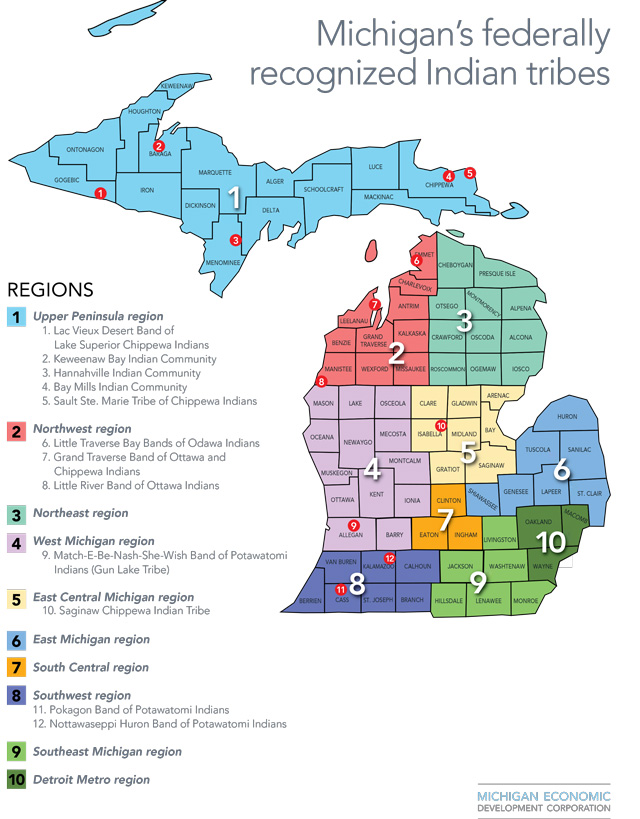Honoring the history and traditions of Native Americans in the Great Lakes State
U.S. President George H. W. Bush declared the month of November Native American Heritage Month in 1990. Since then, Native American Heritage Month has been observed across the country each November to celebrate and commemorate Indigenous people and their rich histories. Gov. Gretchen Whitmer proclaimed November 2023 as Native American Heritage Month in Michigan.
Earlier this year, Sen. Sue Shink introduced Senate Bill 441, to help protect State and Tribal fishing areas. Under this legislation, charter and commercial fishing operators would be required to report their catch data twice a month to the Department of Natural Resources, to help improve data accuracy and assist in co-managing resources. Senate Bill 441 would update reporting requirements to align with the Great Lakes Consent Decree, an agreement that defines how the state, the federal government and five of Michigan’s tribal governments will cooperatively allocate and manage the resources and waters of the Great Lakes.
In October of this year, Public Act 165 was signed into law by Gov. Whitmer and allows for state-licensed marijuana businesses to conduct trade with tribal cannabis entities located within the state. This legislation ensures that tribal communities directly benefit from the businesses that exist on tribal lands.
On the first day of Native American Heritage Month, the Michigan State Senate passed bipartisan legislation, House Bill 4852, which designates manoomin as Michigan’s official native grain. The bill is now on its way to be signed by Gov. Whitmer.
Manoomin, or Michigan wild rice, grows naturally in Michigan’s waterways and is a cultural, spiritual and culinary staple of the Anishinaabe tribes. Indigenous people have a long history in the Great Lakes region, utilizing its vast natural resources to survive. It is believed Indigenous people occupied and traveled the Great Lakes region for over 10,000 years prior to European settlements. Michigan’s first inhabitants’ diets often relied on harvesting nuts, berries, fruits and grains — including manoomin — that grow naturally across Michigan’s landscape.
“Manoomin was essential to the life of the people here on this land before European settlers came,” said Sen. Jeff Irwin (D-Ann Arbor). “As you may know, and this is changing, but we have long winters here in Michigan, we have thick ice, and access to calories over those longer winters was not just a cultural artifact, it literally meant life or death to the tribal communities here in Michigan.”
Sen. Irwin, who is a member of the Sault Tribe of Chippewa Indians, has advocated for Michigan’s Native people throughout his time in the Michigan Senate — most recently through the introduction of Senate Bill 498, which ensures Michigan’s Foster Care Review Boards will work effectively with tribal governments to serve Native American children.
Earlier this year, Sen. Irwin also co-sponsored Senate Bills 137 and 138 (now Public Acts 68 and 69), making Michigan families who provide permanent guardianship for tribal children eligible for the Guardianship Assistance Program without regard to which court orders a child’s guardianship.
“These bills will fix a fundamentally unfair situation in which the state can provide support for a child to be placed in foster care with strangers but cannot provide that same amount to a guardian within their own community or extended family,” added Sen. Irwin.
In addition to SBs 137 and 138, Sen. Irwin also co-sponsored previous legislation to raise awareness about the history of Indian boarding schools in Michigan and encourage the State Board of Education to include the material in statewide curriculum standards.

According to the U.S. Bureau of Indian Affairs, the theme of this year’s Native American Heritage Month is “Celebrating Tribal Sovereignty and Identity.” The BIA’s webpage of Native American Heritage Month states, “Tribal sovereignty ensures that any decisions about Tribes with regard to their property and citizens are made with their participation and consent.”
Currently, there are 12 federally recognized tribes within Michigan’s borders operating on sovereign land under a special agreement with the state and federal governments. More information on each of the tribes can be found here.
The cultures and traditions of Michigan’s first people continue to live on, and their achievements can be celebrated in many ways throughout the month of November and beyond — whether through reading books by Michigan Native American Authors , exploring Native American historical displays and browsing indigenous art galleries or visiting any of these 4 must-see native American cultural sites.
Native American cultures, traditions and ways of life truly enrich our communities. It is important our state continues to acknowledge and honor the contributions of Native American people and their ancestors within the state of Michigan.
Read more from the Michigan Senate Democrats at SenateDems.com/press.
